Search Results
Showing results 1 to 20 of 20

Make Your Own Weather Station
Source Institutions
This three-part activity shows learners how to build three meteorology tools: a wind vane, a rain gauge, and a barometer.

Weather Vane
Source Institutions
In this meteorology activity, learners build weather vanes using straws, paperclips, and cardstock.

Weather and Climate: What's the Difference?
Source Institutions
This lesson plan enables learners to explore the differences between weather and climate.

DIY Weather Vane
Source Institutions
In this activity, learners will engineer their own weather vane. This activity includes step-by-step instructions with pictures and a "What's Happening?" section explaining how the activity worked.
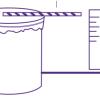
Weather Forecasting
Source Institutions
This activity (on page 2 of the PDF under SciGirls Activity: Forecasting) is a full inquiry investigation into meteorology and forecasting.
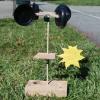
Weather Vane and Anemometer
Source Institutions
In this meteorology activity, learners construct simple devices to measure the direction and speed of wind.

Gravestone Weathering
Source Institutions
In this activity (located on pages 9-14 of PDF), learners visit a cemetery to examine the distinguishing characteristics of rock weathering.
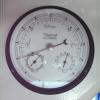
Make Your Own Barometer
Source Institutions
In this weather activity (page 10 of the PDF), learners will demonstrate the changes in atmospheric pressure by constructing their own barometer.
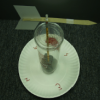
Design and Build a Wind Vane
Source Institutions
In this activity, learners design and build a simple wind vane —one of the oldest kinds of weather tools— and use it to show wind direction.
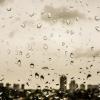
It's the "Rain," Man
Source Institutions
In this weather forecasting activity, learners use common materials to construct a rain gauge and measure daily, monthly, and yearly rainfall.
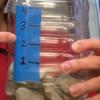
Homemade Rain Gauge
Source Institutions
In this activity, learners will build rainwater collectors to practice meteorology in their own backyard. Collect and analyze data to determine how much rainfall you get in a set period of time.

Where Does the Wind Blow?
Source Institutions
In this activity, learners investigate wind by comparing the force of wind in different locations. Learners build wind-o-meters out of wooden sticks and strips of paper.
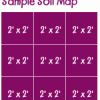
Creating a Soil Map
Source Institutions
In this activity, learners investigate soil conditions by creating a soil map. Learners record soil characteristics and compare the conditions of soil in different grid sections.
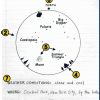
Stargazing
Source Institutions
In this nighttime, outdoor activity, learners keep a record of what they see in the sky by drawing constellations, the Moon, and making note of the weather and conditions each day.

Erosion
Source Institutions
In this activity, learners model erosion using a clear shoebox and sand or soil.
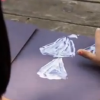
Sunblock Investigation
Source Institutions
In this "Sid the Science Kid" activity, learners set up a simple experiment to find out how sunscreen counteracts the effects of the sun.

Lift Off!
Source Institutions
This activity (on page 2 of the PDF under SciGirls Activity: Lift Off) is a full inquiry investigation into the engineering challenges of sending scientific sensors into space.
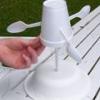
Measuring the Wind
Source Institutions
In this activity, learners explore how anemometers work to record wind speeds and how the equipment has undergone engineering adaptations over time.

Fruit Fly Trap
Source Institutions
Build a fruit fly trap out of a 2-liter plastic bottle and some rotten fruit! Fruit flies are easy to catch in warm weather. Once you catch some, you will be able to see their life cycle up-close.
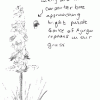
Nature Drawing
Source Institutions
In this family or group activity, learners create a nature journal by visiting a local nature center or backyard, observing creatures in their natural habitats, and sketching what they see.
